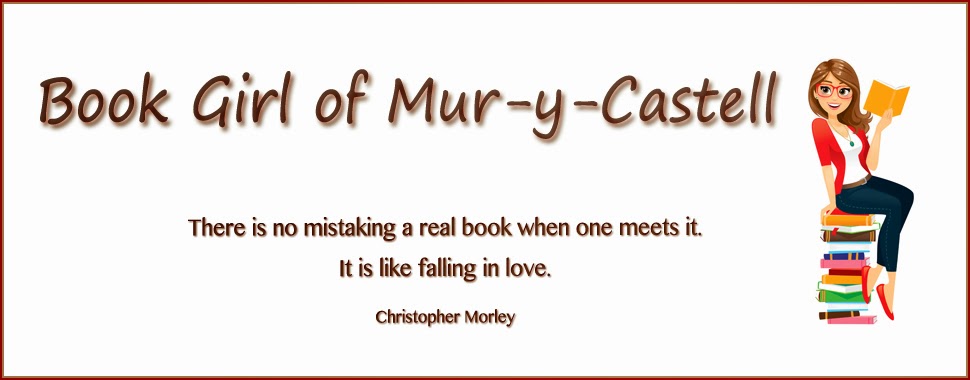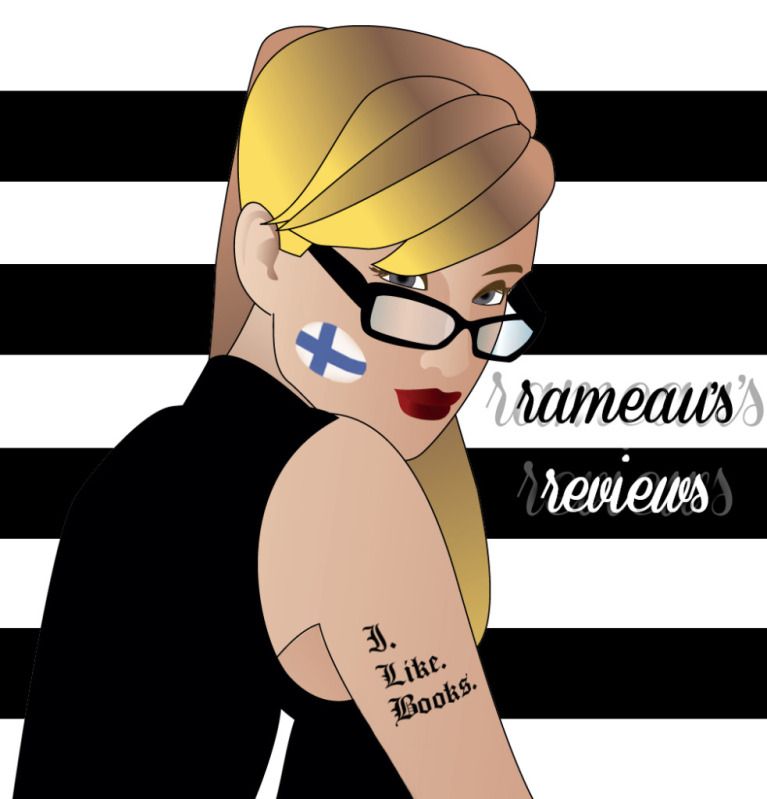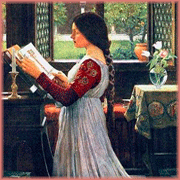I’ve been actively reading and reviewing books for a year and a half
now. In that time, my criteria for rating a book on the one to five stars scale
has changed a couple of times. A few things still hold true. The book has to be
exceptional and leave an indelible impression to get a five star rating from
me. Three stars remains my meh-rating. It’s a book that I can objectively call
a good one, something I might have even enjoyed reading, but it’s also
something I can easily forget and move on.
My one star rating however, that’s changed the most. At first it was
anything and everything I simply didn’t like. If the offences added up to a
certain point I’d give it a one star rating no matter what redeemable qualities
I’d find in it. But as I read more and actually started thinking about it, I
realised there are books that aren’t even worthy of that single star, books
that are, to me, beneath contempt. To compensate, I adjusted my personal rating
scale and now one star is reserved to books that induce burning white rage in
me.
I’ve given good ratings to books with characters I’ve hated when I
enjoyed the story, and I’ve given good ratings to books with stories I’ve hated
even when I loved a character or two. For me, the style matters little, but dammit,
it matters.
And I’m not talking about the clunky language that in a way fits the
subject and the legend, but takes a while to get used to.
Ms. Bradley set out to write a retelling of the Arthurian legend from
the female perspective, and in that she succeeded. She managed to put together
a logical and a somewhat coherent version of the events that put King Arthur on
his throne in Camelot and brought him down from it, and she managed to tell it
with female voices. Igraine, Viviane, Morgaine, Gwenhwyfar, Morgause, all these
women claw their way from the footnotes of myth and become three dimensional
people—not just characters, but people—with worries and joys of their own.
Admittedly those joys were short-lived, but that’s partly why I loved
the story. It’s why I love the legend as I do all things heart-rending.
However, as wonderfully flawed all these people were with their virtues
and their unbridled ambitions, none of them really had a choice in the matter.
Ms. Bradley didn’t write people, women or men, who made the best of their
unfortunate circumstances. She wrote people thrown about by the fates and whims
of their deities. Morgaine’s last defence is that she never had a choice and
that she was merely the Goddess’ instrument.
And that’s why I hate this book.
All the characters, as Ms. Bradley paints them, are passive. None are
active. None make choices and then take responsibility for their actions.
They’re all thrown into untenable situations where something must break and
either give them that what they most wish or take it all away from them.
Igraine marries because she doesn’t have a choice. She goes to convent,
because she can’t bear to face the sister who forced her hand.
Gwenhwyfar also marries, because she doesn’t have a choice. She first
surrenders to her lover because she doesn’t have a choice. The only stupid
choice she makes is so that the author has an excuse to make the pious lady
into an adulteress without making her choose it.
Morgaine, the worst offender, chooses nothing. The closest she comes to
making up her own mind is when she flees Avalon, but after that she promptly
becomes the meekest of them all. She, who should be the fearsome Lady of the
Lake and High Priestess of the Goddess, how can she be a vehicle of her Goddess’
will when she does nothing but allows others act around her?
Catalyst, you say? This isn’t a chemical reaction where one substance
remains unchanged. People change, people make choices that change them and
others around them. Unless, of course, you’re a character in The Mists
of Avalon.
But times were different then and women nothing but chattel, you say?
There’s difference in being victimised and being a victim. All Morgaine and the
others had to do to win me over, was not to see themselves as victims. All they
had to do was to endure what was thrown at them and choose to make the best of
it. All they had to do was to choose.
Only Morgause and Viviane come close to choosing anything, and how are
their choices rewarded? Why of course, they are the great
villainesses whose actions lead to a family tragedy after a family tragedy.
Their actions bring an end to all those things they love and they don’t live to
see the aftermath or acknowledge their responsibility.
Telling a story from the female perspective doesn’t make it feminist;
writing capable women doing things, being active, and making choices does. This
book is something worse; it’s a pretender.
There are many things I appreciate in this book, one thing I don’t is
how it all was told. That matters. Dammit.
Series: Avalon #1
Chronological order #7
Pages: 912
Publisher: Del Rey
ISBN: 0345441184
Published: 2000 (orig. 1983)
Source: Library



































Wow, thank you blogger for messing up that last part..oh well.
ReplyDeleteThanks for the review Rameau!
That was an interesting glitch. Blogger never ceases to fail.
DeleteThanks for taking it. I've been lazy reader lately.
I am glad that you read something again then so I could get a juicy review :)
DeleteHow a story is told is usually a game-changer. I haven't read this book but I've been aware of it for a while. Sorry it didn't work for you.
ReplyDeleteI think I decided to read this when I read Anachronist's review and do I agree with her about the story itself. It's a great story, just dull and patronising.
DeleteI won't be picking this one up any time soon! I appreciate your thoughtful review.
ReplyDeleteThanks. It's something I'd grab from a library shelf and spend a half an hour reading before deciding whether to borrow it or not. The issues that bothered me might not bother you as much.
DeleteI'm not thrilled with passive characters, so I think I'll pass on this one.
ReplyDeleteThey are the great weakness in the story, but if you like the legend it's worth a glance.
DeleteEven if you go with the theory that those were the times and women didn't have choices...it just makes for a boring story if the characters don't do anything, make choices or develop/evolve in any way.
ReplyDeleteBasically we just end up following them around, watching them like a fly on the wall.
Sorry this one didn't work for you.
Someone pointed out on Goodreads that even chattel dream of rebelling, but I didn't feel like these women did that. Morgaine for example was spared of making mistakes by the men acting according to plans discussed earlier. How was she to learn from something she didn't do?
DeleteWell it sucks to wade through over 700 pages for little pay off and passive characters. I am sorry this didn't meet expectations but I am glad you read it and steered me away!
ReplyDeleteI'm glad I could help.
DeleteIt wasn't an utterly wasted effort. I did get to read a coherent version of the Arthurian legend.
I remember reading and hating some scenes just because the heroines didn't have any choice, not really. Overall I assessed this book much higher but I admit it was a bleak read.
ReplyDeleteI remember that, and your review. And I agreed with you on many of the positive things. I just couldn't enjoy them as you did because of the passive characters.
DeleteIt wasn't just that the the story was bleak or that the women didn't have any choice; it was that they didn't think they had any choice. It's different to read a story you know how it's going to end because it's a legend and that's how it's supposed to end, and reading a story you know how it's going to end despite how it's being written.
I didn't feel like Morgaine, Gwenhwyfar, and the others were writing their own story and living their own lives that just happened to sum up to the unfortunate downfall of Arthur and Camelot. I read a story that was destined to end in a certain way and everyone including the characters themselves knew it.
And I think a better writer would have managed to give me that illusion that the story could have ended differently and that it was just bad luck Arthur died in the end.
I suppose I was too engrossed in the different twists and turns to notice the passive attitude of the characters but I suppose if I thought about it more I would come to a similar conclusion. Predestination is such a bleak theory after all, making all your efforts useless.
DeleteI wont be picking this book up then.
ReplyDeleteI'm glad my suffering spared someone else's pain.
DeleteI actually liked this book. Mostly because it took a story I never warmed and made it better. She didn't change the outcomes, just the characters. They were passive in the original too. I think it has become feminist because before they touted Gwen (who I never liked) because she was meek. They also vilified Morgaine because she was strong (sound familiar?). So, MZB took these characters and, to me, exposed them for who they were... flaws and all. I liked that so much better.
ReplyDeleteHowever, not comparing it to the first... you certainly have a point. ;)
Oh, I can understand that. And I did like huge parts of it, it just wasn't enough for me. I've not read that many interpretations of the legend and if you say they were meek and passive in the original too, I'll believe you.
DeleteThe point is that as much as Ms. Bradley might have improved upon the characters by exposing and exploring their flaws, I don't think she went far enough. I think she stopped a couple of steps before the finish line.
And while Ms. Bradley might have redeemed Morgaine and showed her as something other than a simple villain, she did shift the blame onto two other women and vilify them. I don't understand how that helps the cause.
It's too bad the female characters were passive like that. I watched the film version of this one and enjoyed it.
ReplyDeleteIt annoyed me to no end. At first it was understandable but as they grew and aged it became less so and started truly to irritate me. I haven't seen the film, and glancing at the cast list, I'm not absolutely convinced I want to. But I'll keep it in mind.
DeleteWell, I loved this book and thought the author wrote one hell of a story.
ReplyDeleteTrue, absolutely. I'm glad you liked it better than I did.
DeleteI'm sorry you didn't like this one. I never read it and it really doesn't seem like a book I'd be interested in anyway. Thanks for the honest review.
ReplyDeleteThanks. It was the legend that lured me in. That and a promise of strong women.
DeleteI've read this in my teens, and can't much remember of it, but in that time I devoured everything and anything Arthurian and mythologic. I don't think I would enjoy it very much at this point in life.
ReplyDeleteI've come to the conclusion that certain books and stories should be read during the teen years. After that (most) people grow up and lose patience with melodramas and certain other things that we've come to consider classics.
DeleteI didn't know this one but saw this author a lot. I think I have one book in my TBR pile. I'm sorry it wasn't for you, it's always difficult. but thanks for the discovery.
ReplyDeleteYou're welcome and I hope you like the book better than I did.
DeleteI understand what you're saying, I just never got any of that from this story. I loved it immensely. It was quite some time ago, but I felt like because of the deities, mystical forces, and the times, these women were left with limited choices.
ReplyDeleteI also remember thinking how badly the Church despised all other religions and women. Or am I getting my Dark Ages books confused?
Excellent review in any case :)
Thank you. I don't think you're getting anything confused. Christianity or more accurately its priests as portrayed in this book did despise women and other religions.
DeleteAnd as I've said before, I can understand why you'd love this book. There were many thing I did like and appreciate, but unfortunately I didn't buy the portrayal of women and how they viewed themselves. Even people who have limited choices, who are slaves even, do dream of rebellion and freedom. Had they been truly happy in accepting things as they came and being obedient to their superiors they wouldn't have considered themselves as victims.
It's in the human nature to dream of better things and circumstances, these characters didn't.
I really liked this book, but I do understand your argument about the main characters being too passive. I share your opinion on that, many times I'd wished that they would take some action to influence the world around them, be a leader. They never did, but I still felt that despite never affecting their surrounding, they grew wiser. When I finished this book, I felt a bit depressed, but at the same time, I felt like I had just lived a whole life and left it behind.
ReplyDelete